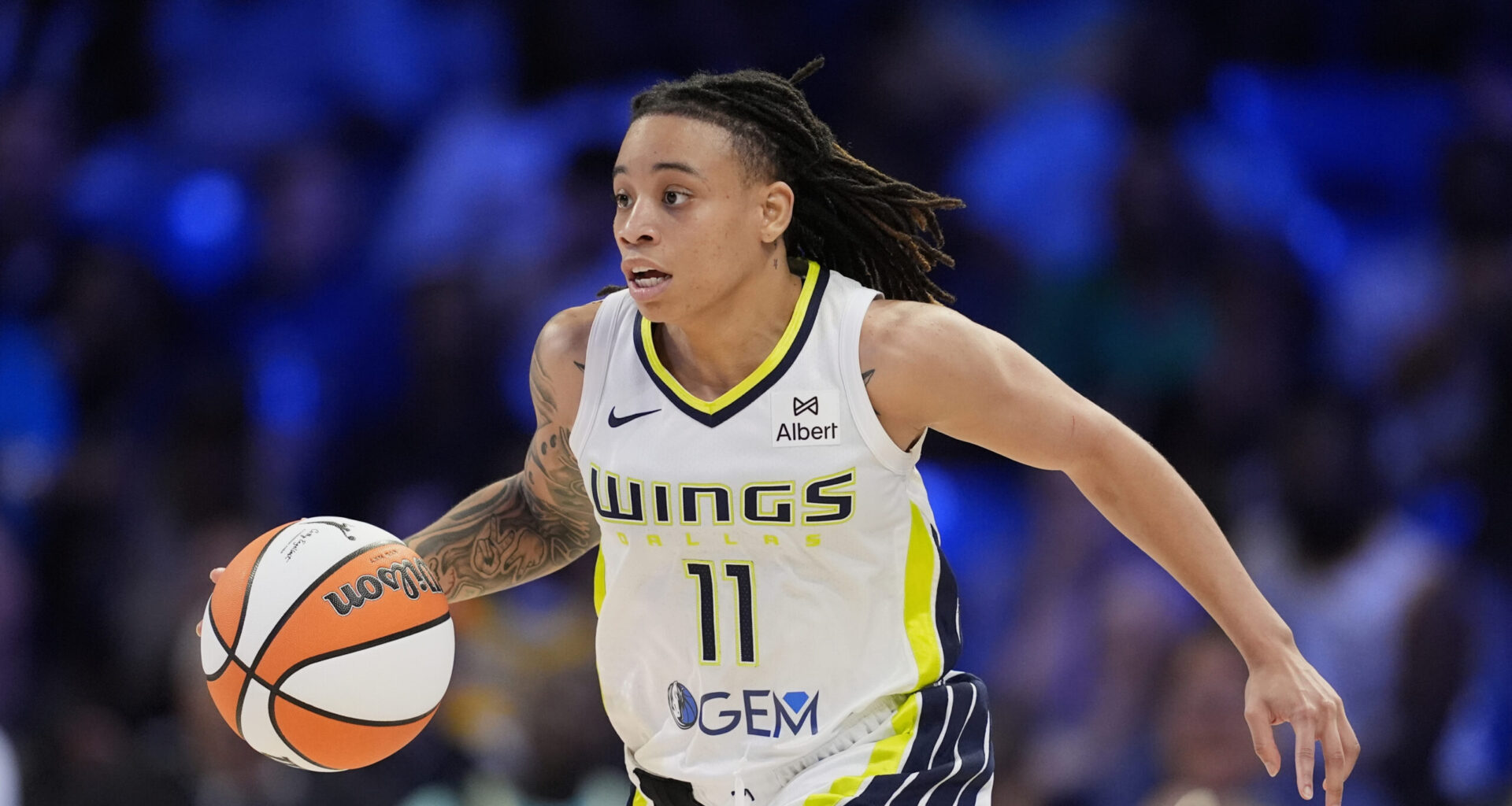MORGANTOWN — J.J. Quinerly is quickly becoming the latest example of just how off key the best professional basketball talent evaluators can be.
You likely remember Quinerly as the ultra-speedy and tenacious defender during her four seasons with the WVU women’s basketball team, where she became the face of the program, the definition of loyalty and one of the program’s all-time top players.
To us here in the Mountain State, Quinerly could do no wrong.
To those evaluators in the WNBA who hold all the cards in how a college athlete’s career begins in the pros, she was simply a long shot worth taking.
First, we hit you with the news: Since moving into the Dallas Wings’ starting lineup on June 28, Quinerly is averaging 16.5 points and 5.3 assists per game.
She’s scored at least 15 points in all four games — the Wings are 2-2 in that time — while shooting 47% from the field and 44% from 3-point range.
Not bad for a player selected in the third round of a three-round draft, the No. 27 overall pick out of 38 selections overall.
The absolute steal of the 2025 WNBA Draft? That’s sort of the buzz out there right now around Quinerly.
The unfortunate part of the story is it took mayhem in order for Quinerly to get her opportunity.
Injuries hit and the Wings lost a couple of players to overseas commitments. It wasn’t until the roster was down to just eight available players that Quinerly got the starting nod.
For someone like Quinerly, who accomplished all that she did at WVU, that is truly a crying shame. Which is where we get back to evaluating talent at the professional basketball level.
The only sport that is worse in evaluating talent than basketball is baseball, but that sport has the odds and numbers on their side — more positions, more players to evaluate and a longer draft — in order to get away with missing on future stars.
Basketball scouts, coaches and general managers do not have those same luxuries, and so when an unexpected player begins to accomplish unpredictable things, it gets blown up way more than it ever does in baseball.
Nikola Jokic of the Denver Nuggets has won MVP of the NBA three times.
Here are the only other players in NBA history who have won at least three MVPs (you may have heard of some of them): Kareem Abdul-Jabbar, Michael Jordan, Bill Russell, LeBron James, Wilt Chamberlain, Larry Bird, Magic Johnson and Moses Malone.
That is the elite of elite in basketball history, yet when it came time for Jokic to be drafted in 2014, ESPN was in commercial break showing a Taco Bell spot when his name was called.
Jokic was the 41st pick out of 60 that year.
Let’s not get ahead of ourselves with where Quinerly’s pro career is headed, and we’re certainly not saying she’s the next Jokic.
Still, how could so many “expert” basketball geniuses not be able to properly project Quinerly’s potential as anything more than someone to take a stab at in the third round of the draft?
The answer is simply to say there are only tools to evaluate the outside of athletes.
They’ve got stopwatches to gauge speed and measuring tapes for height. They have tests to see how high they can jump and how far they can throw a ball.
What they couldn’t see about Quinerly was her desire, her heart, her passion.
It’s the same story with some of the all-time greats in sports. Tom Brady was the 199th overall pick of the 2000 NFL Draft. Albert Pujols saw 401 guys picked in the 1999 MLB draft before he was.
And, maybe, someday we’ll speak of Quinerly as another one of those overlooked athletes in the draft and wonder how in the heck it happened.
For now, Quinerly is likely focused on her next game, which just happens to be on national TV (ABC) at 1 p.m. Sunday against Caitlin Clark and the Indiana Fever.
